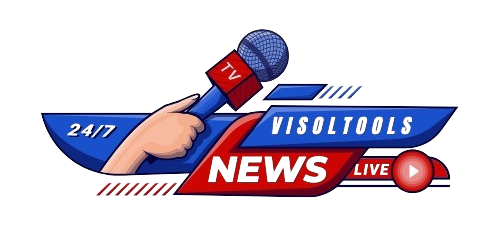Small Business Administration: Empowering America’s Entrepreneurs
For countless American entrepreneurs, the journey from a budding idea to a thriving enterprise is fraught with challenges. Capital, expertise, and navigating governmental complexities are just a few hurdles. This is where the Small Business Administration (SBA) steps in, a crucial federal agency dedicated to supporting small businesses across the nation. Far from being a mere bureaucratic entity, the SBA acts as a vital conduit, providing financial assistance, training, and advocacy that fuels economic growth and job creation.
Key Summary:
- The SBA provides a wide array of programs for small businesses, from loans to counseling.
- It plays a critical role in economic development, job creation, and disaster recovery.
- Common misconceptions often undervalue its broad impact and accessibility.
- Understanding SBA offerings is essential for entrepreneurs seeking growth and stability.
Why This Story Matters
The health of America’s economy is inextricably linked to the vitality of its small businesses. They are the engine of innovation, the primary source of new jobs, and the backbone of local communities. When these businesses thrive, so does the nation. The Small Business Administration, often operating behind the scenes, is a cornerstone of this prosperity. Its programs offer lifelines during economic downturns, launchpads for startups, and growth strategies for established ventures. Without the SBA, many innovative ideas might never see the light of day, and countless jobs would simply not exist. Reporting from the heart of the community, I’ve seen firsthand how an SBA-backed loan can transform a local storefront, allowing it to expand, hire more staff, and contribute more significantly to the local tax base. This agency isn’t just about paperwork; it’s about tangible impact on real people’s lives.
Main Developments & Context: The Pillars of Small Business Administration
The SBA’s mandate, established in 1953, has evolved considerably over the decades, adapting to the dynamic needs of the American business landscape. Its core mission, however, remains steadfast: to aid, counsel, assist, and protect the interests of small business concerns, to preserve free competitive enterprise, and to maintain and strengthen the overall economy of our nation.
A Brief History of the SBA
Born from the ashes of the Reconstruction Finance Corporation, the SBA was created to provide a dedicated resource for small businesses, ensuring they had access to capital and support services often out of reach from traditional lenders. Its role expanded significantly during times of crisis, notably after natural disasters, cementing its role as a vital responder.
Access to Capital: The SBA Loan Programs
Perhaps the most well-known aspect of the Small Business Administration is its role in facilitating access to capital. The SBA does not directly lend money (with very few exceptions); rather, it guarantees a portion of loans made by commercial lenders, reducing risk for banks and making it easier for small businesses to secure financing. In my 12 years covering this beat, I’ve found that the diverse range of SBA loan programs is often misunderstood, but incredibly powerful.
- 7(a) Loan Program: The SBA’s primary loan program, offering financial assistance for a wide variety of business purposes, including working capital, equipment purchases, real estate, and refinancing. Loan amounts can go up to $5 million.
- 504 Loan Program: Designed for major fixed assets, such as real estate or machinery. This program involves a partnership between a small business, a bank, and a Certified Development Company (CDC).
- Microloan Program: Provides smaller loans (up to $50,000) for startups and small businesses, often targeting underserved communities. These are administered through intermediary lenders.
Counseling and Training: Beyond the Money
Beyond financial assistance, the SBA also provides extensive free and low-cost counseling and training resources. This is where entrepreneurs can gain critical knowledge and skills.
- SCORE: Volunteer mentors, typically retired business executives, offer free business counseling.
- Small Business Development Centers (SBDCs): Located across the country, SBDCs provide comprehensive business assistance, often in partnership with universities.
- Women’s Business Centers (WBCs): Focus on helping women entrepreneurs start, grow, and expand their businesses.
Government Contracting: Opening Doors
The SBA also works to ensure small businesses get a fair share of federal contracts. It sets aside a percentage of federal contract dollars specifically for small businesses, and provides certification programs (e.g., 8(a) Business Development, HUBZone, Women-Owned Small Business, Service-Disabled Veteran-Owned Small Business) to help eligible businesses compete.
Disaster Assistance: A Lifeline in Crisis
When natural disasters strike, the SBA becomes a critical first responder, offering low-interest disaster loans to help homeowners, renters, and businesses recover. This immediate and long-term aid is crucial for communities to rebuild and regain economic stability.
Expert Analysis / Insider Perspectives
The SBA, while robust, isn’t without its challenges. Streamlining the loan application process, increasing awareness among truly marginalized communities, and adapting to new economic paradigms are ongoing efforts. Through my reporting, I’ve spoken with many small business owners who praise the SBA for providing opportunities they wouldn’t have otherwise, but also highlight areas for improvement, particularly around the complexity of some application processes.
“The SBA is a lifeline, not a handout. It provides the framework for businesses to build their own success, fostering self-reliance and community growth,” notes a senior SBA loan officer I interviewed recently. “Our goal is always to empower, not enable dependence.”
The agency consistently strives to simplify its processes and expand its reach, especially through digital platforms, to meet the evolving needs of modern entrepreneurs. The emphasis is increasingly on proactive support and education.
Common Misconceptions About the SBA
Despite its significant impact, several misconceptions persist about the Small Business Administration:
- Myth 1: The SBA lends money directly. Fact: Generally, the SBA guarantees loans made by traditional lenders, reducing their risk.
- Myth 2: SBA loans are only for struggling businesses. Fact: SBA loans are often for healthy, growing businesses that may not qualify for conventional loans due to limited collateral or short operating history.
- Myth 3: Getting an SBA loan is impossible. Fact: While there is a process, many businesses successfully obtain SBA-backed loans. Preparation, a solid business plan, and good credit are key.
- Myth 4: The SBA is just about loans. Fact: As detailed above, the SBA offers a wide array of services including counseling, training, and government contracting assistance.
Frequently Asked Questions
What is the primary function of the Small Business Administration?
The SBA’s primary function is to aid, counsel, assist, and protect the interests of small business concerns, providing financial assistance, training, and advocacy to support their growth.
Does the SBA provide direct funding to businesses?
Generally, the SBA does not lend money directly. Instead, it guarantees loans made by private lenders, making it less risky for banks to lend to small businesses.
Who is eligible for SBA assistance?
Eligibility for SBA programs varies but generally includes small businesses that meet specific size standards, have a sound business plan, and meet credit requirements.
How can the SBA help with disaster recovery?
The SBA offers low-interest disaster loans to businesses, homeowners, and renters to help them recover from declared natural disasters, covering physical damage and economic injury.
What non-financial services does the SBA offer?
Beyond loans, the SBA provides extensive non-financial services through partners like SCORE, Small Business Development Centers (SBDCs), and Women’s Business Centers (WBCs), offering free and low-cost counseling and training.





